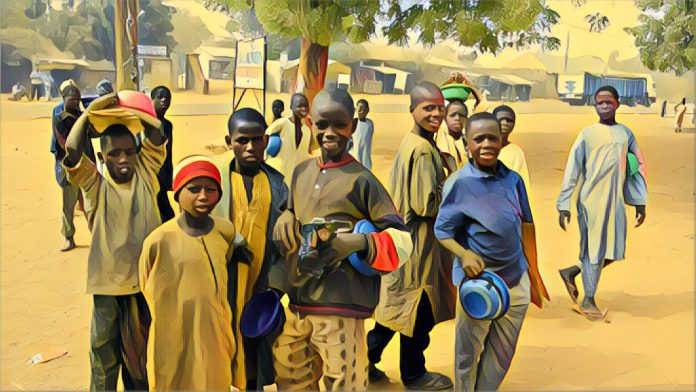Nigeria’s government and Nasarawa State have announced plans to take the almajiri children off the street and return them to school by providing them with free meals and education. The almajiri are children who are sent by their parents to Islamic schools, often far from their homes, where they live in poor conditions and beg for food and money.
The new reforms are part of the federal government’s school feeding programme, which aims to improve the nutrition and enrolment of school children across the country. The programme currently feeds over 10 million pupils in primary schools every day, according to the National Home Grown School Feeding Programme (NHGSFP) website.
The Senior Special Assistant to the President of the Schools Feeding Programme, Yetunde Adeniji, said the reforms would also include children with disabilities and children living in IDP camps, who have not been covered by the programme yet. She said her office was working with NGOs and donor agencies to obtain data on these children and see how they can feed them and bring them back to the classrooms.
Adeniji made these remarks during a familiarisation visit to Nasarawa State Governor Abdullahi Sule on Friday, in Abuja. She said she chose Nasarawa State because it received recognition at the first global meeting of the School Meals Coalition, in Paris, where Loko Local Government Area received a standing ovation as one of the first local governments to embrace the school feeding programme.
Governor Sule expressed his support for the initiative and said he was personally interested in taking the almajiri off the streets. He said the almajiri system was outdated and only practised in northern Nigeria. He said the ideal thing was for the children to attend Quranic schools in their hometowns from their parents’ houses.
“You have touched an area of great interest to me. If you can pick it, you just tell me how I can be of help and you will find me doing my best there, including my support. I’m always upset whenever I come across minors in tattered clothes roaming the streets barefooted”, Sule said.
The almajiri system has been criticised by many Nigerians as a source of social problems and insecurity. According to a 2014 report by the United Nations Children’s Fund (UNICEF), there are about 9.5 million almajiri children in Nigeria, making up 72 per cent of the country’s out-of-school children.
The new reforms are expected to address the plight of these children and give them a chance to access quality education and a better future.
Source: Tribune Online



